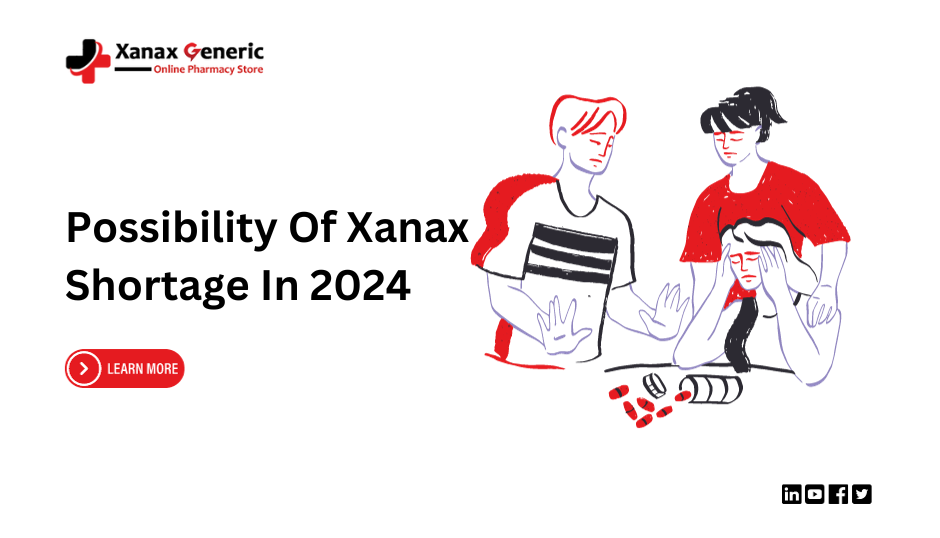What is the Possibility Of Xanax Shortage In 2024?
Xanax, known by its generic name alprazolam, is one of the most commonly prescribed medications in the United States. It belongs to the class of drugs known as benzodiazepines, which are primarily used to treat anxiety disorders and panic attacks.
Xanax is widely relied upon by patients to manage their mental health conditions. However, there have been concerns regarding the possibility of a shortage in the supply of Xanax in 2024.
The Rising Demand for Xanax
The demand for Xanax has been steadily increasing in recent years. Anxiety disorders and related mental health conditions have become more prevalent, leading to a significant rise in the number of prescriptions for Xanax. Additionally, there has been a growing awareness of mental health issues, encouraging individuals to seek treatment and medication.
This increasing demand for Xanax has placed a strain on the pharmaceutical industry to keep up with supply. Shortages of various medications have been observed in recent years, and Xanax may not be an exception.
Factors Contributing to the Possibility of a Shortage
Several factors contribute to the possibility of a Xanax shortage in 2024:
Supply chain disruptions
The pharmaceutical industry heavily relies on global supply chains. Disruptions in the supply chain, whether due to natural disasters, political unrest, or pandemics, can have a significant impact on the availability of medications, including Xanax.
Regulatory restrictions
The regulations surrounding the production, distribution, and sale of medications are constantly evolving. Changes in regulations can lead to delays, increased costs, or even production halts, all of which can contribute to a potential shortage.
Raw material availability
The production of Xanax requires various raw materials, including alprazolam itself. Any shortage or limited availability of these raw materials can cause production delays and consequently impact the availability of the medication.
Increased demand for generic versions
As patents for brand-name drugs expire, generic versions become available. Generic medications are usually more affordable, leading to an increased demand for these alternatives. The pharmaceutical industry may face challenges in meeting the demand for both brand-name and generic Xanax.
Mitigating the Possibility of a Shortage
While the possibility of a Xanax shortage in 2024 exists, there are steps that can be taken to mitigate this issue:
Diversifying suppliers
Pharmaceutical companies can work to diversify their supply chain by relying on multiple suppliers for raw materials. This reduces the risk of disruption due to issues faced by a single supplier.
Increased production capacity
Manufacturers can invest in expanding their production facilities and capabilities to meet the growing demand for Xanax. This can help ensure a continuous supply of the medication.
Strategic inventory management
Maintaining optimal inventory levels can help prevent shortages. Pharmaceutical companies can employ robust inventory management systems and predictive analytics to forecast demand and adjust their production accordingly.
Regulatory adjustments
Regulatory authorities can play a crucial role in ensuring a stable supply of medications. Streamlining regulations and providing clear guidelines can help the industry plan and allocate resources more efficiently.
Conclusion
The possibility of a Xanax shortage in 2024 cannot be entirely ruled out. The rising demand for the medication, coupled with potential supply chain disruptions and regulatory challenges, may contribute to this issue.
However, proactive measures such as diversifying suppliers, increasing production capacity and strategic inventory management can help mitigate the risks associated with a potential shortage.
The collective efforts of pharmaceutical companies, regulators, and healthcare professionals are crucial to ensure the uninterrupted availability of Xanax, and other essential medications, for patients who rely on them to manage their mental health.

